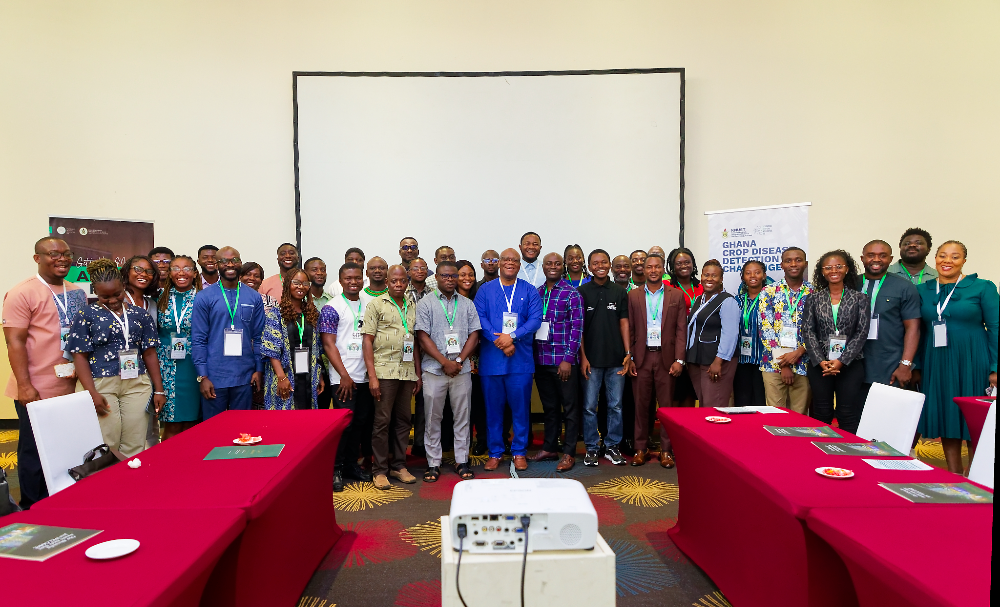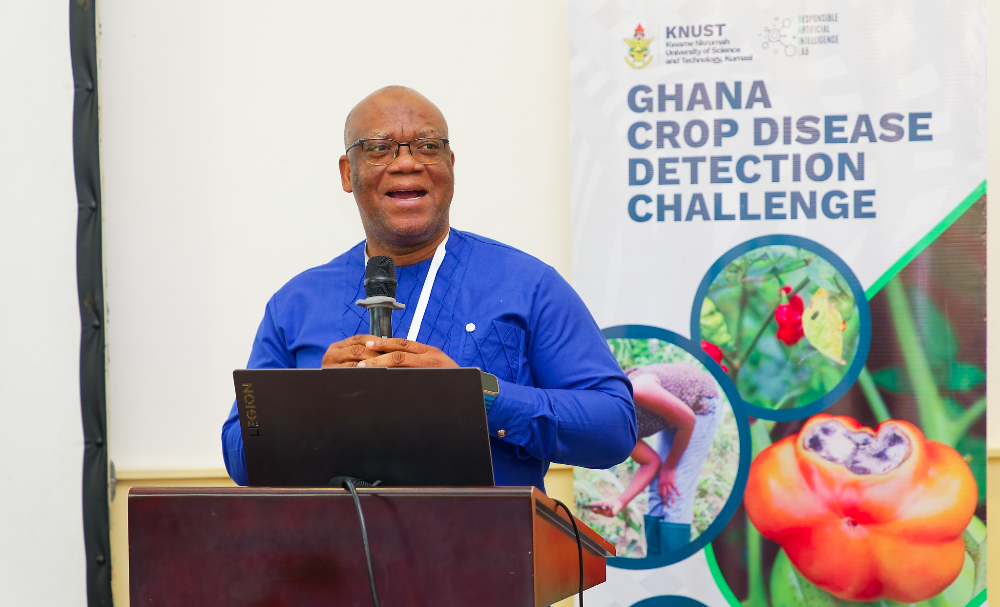Professor Jerry John Kponyo, Principal Investigator and Scientific Director of the Responsible Artificial Intelligence Lab (RAIL), has emphasised the urgent need to harness artificial intelligence (AI) to achieve the Sustainable Development Goals (SDGs), particularly in health, agriculture, education, energy, illegal mining, and social inclusion.
He made this call during the Ghana Crop Disease Detection Challenge, organised by the RAIL and FAIR Forward (GIZ). The event held on 17th January 2024, at the Alisa Hotel, North Ridge, was under the theme “Artificial Intelligence as a Driver for Climate-Smart Innovations and Digital Intensification of Agriculture.”
Professor Kponyo underscored the importance of datasets in crop disease detection and announced that RAIL has been working diligently to produce datasets, with plans to publish their second dataset soon. "As we push for the adoption of AI, it is a significant step towards meeting the Sustainable Development Goals," he added.
Recalling the inauguration of RAIL, Professor Kponyo highlighted the lab’s achievements through collaborations, establishing it as a leading hub for AI-driven interventions. He stressed the need for partnerships with like-minded individuals and organisations to maximise resources and collaboratively address pressing issues, especially in agriculture.
In his opening remarks, Mr. Elikplim Sabblah of Fair Forward, GIZ, emphasised the importance of demonstrative AI, capacity building, and the generation of policy frameworks. He noted the long-standing collaboration between GIZ and RAIL on numerous projects, highlighting the need for Afrocentric datasets.
“We initiated a challenge for AI models, and we saw impressive models emerge to address crop diseases. Stakeholder engagement is crucial for leveraging AI in agriculture to drive impactful change,” Mr. Sabblah said.
Speaking on leveraging AI to tackle climate change, Professor Nana Ama Browne Klutse, Vice Chair of the United Nations Intergovernmental Panel on Climate Change (IPCC) Working Group, described climate change and technology as the two most significant trends of the century. She called for collective action to find solutions to climate change, emphasising that AI and digital technologies can play transformative roles.
“Climate change poses a severe threat to agriculture and our very existence. Ghana relies heavily on rain-fed agriculture, and changes in rainfall patterns significantly impact productivity,” she stated. Professor Klutse also highlighted the consistent rise in global temperatures and sea levels, warning of the dire consequences if urgent action is not taken.
She advocated for the creation of climate models, noting that AI could be instrumental in climate modelling, prediction, and the optimisation of complex systems. “AI provides unparalleled opportunities for climate-smart agricultural practices by integrating advanced data analytics, predictive models, and machine learning tools,” she said, urging investment in AI infrastructure and capacity building, particularly for youth and small-scale farmers.
“AI is a tool, a means to an end, not an end in itself,” she concluded.
Ms. Akua Tiwaa Sebe from the Plant Protection and Regulatory Services Department (PPRSD) of the Ministry of Forestry and Agriculture (MOFA) spoke about the challenges and opportunities in dataset creation. She stressed that accurate datasets are essential for decision-making and understanding disease patterns. However, she highlighted challenges such as limited geographic diversity, farmer fatigue, and resource constraints.
Presentations were also made by Mr. Dalington Akogo, CEO and Founder of KaraAgro AI Foundation, who shared insights on Ghana Disease Challenge winning solutions; Dr. Stephen Moore, Co-founder of Ghana NLP, who discussed Maize and Cocoa Disease Detection and Classification using Deep Learning; Dr. Dennis Agyemang Nana Gookyi, who presented on TinyML Implementation and Microcontrollers for Maize Leaf Disease Identification and Mr. Remy Sekou from Google, who outlined Google Research Initiatives on Crop Diseases.

The event underscored the importance of AI in addressing critical challenges in agriculture, climate change, and sustainable development, with a call for stronger collaborations, innovative solutions, and inclusive strategies to maximise its potential.

















